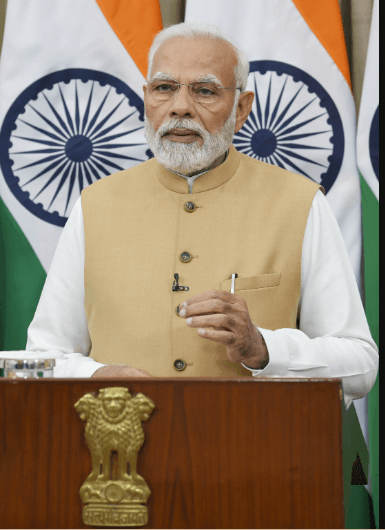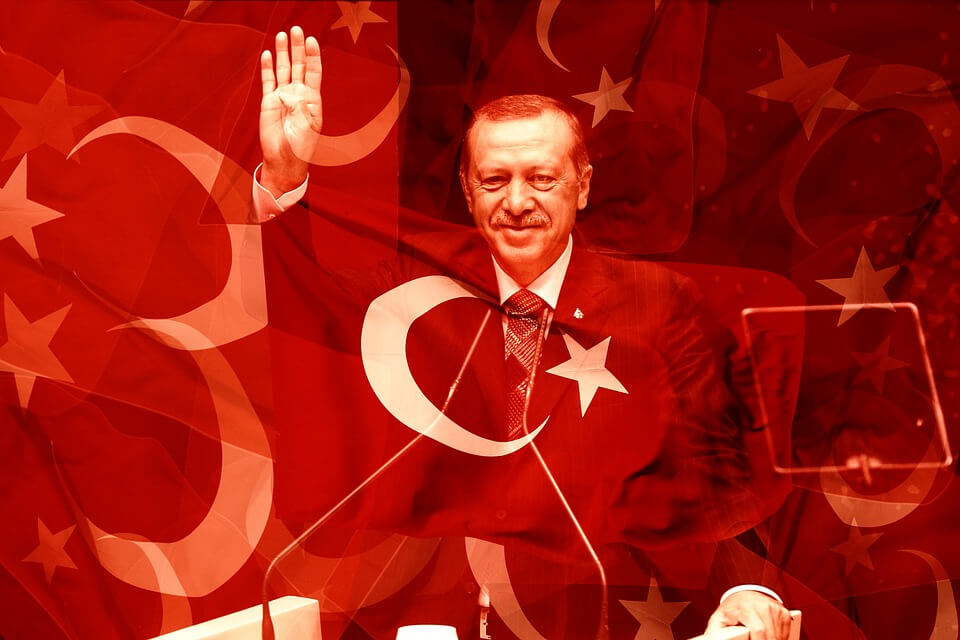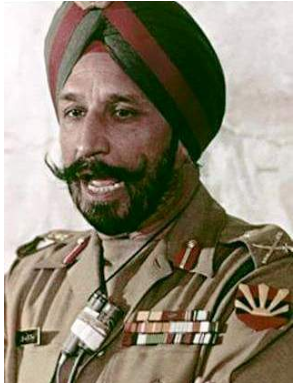Proactive Indian diplomacy at its best


Turkey may be miles away but is close to India’s heart.
In what is being touted to be a perfect example of proactive diplomacy and strategic intervention India was one of the first countries to respond to Turkey’s distress calls in its hour of need.
Even though India and Turkey are not each other’s best of friends, Prime Minister Narendra Modi decided to immediately send search & rescue, medical teams, and relief material to Turkey without wasting time and issued explicit instructions to extend all possible assistance and humanitarian aid to help Turkey cope with the earthquake.
All this was supposedly the brainchild of PM Modi who wanted to kill two birds with one stone and drill home the point that – there are no permanent friends or enemies in international relations and a friend in need is a friend indeed.
Paradoxically though both India and Turkey have many things in common (there are over 9,000 common words in Hindi and Turkish language including the word ‘Dost’ – emphasis included), Indo-Turkish relations have generally been strained due to Turkey’s tilt toward Pakistan. Turkey has sided with Pakistan on a number of occasions because of common Islamic religious roots. For instance, Turkey has been opposing India’s inclusion in the Nuclear Suppliers Group.

Turkey reportedly stood by Pakistan and criticized India at the United Nations on the Jammu and Kashmir issue, and revocation of article 370 in September 2019.
Indo-Turkish ties particularly deteriorated after the abrogation of Article 370 which diluted the special status of Jammu and Kashmir. Since then both India and Turkey have been practicing shadow boxing –hitting each other, mostly indirectly, at various international forums.

Delivering a speech at the United Nations General Assembly (UNGA) Recep Tayyip Erdogan the 12th and current president of Turkey raised the Kashmir issue in 2019. Modi responded by holding meetings with the leaders of Armenia, Cyprus, and Greece, three countries with which Turkey has strained relations and disputes. Likewise, Modi who was slated to visit Turkey and Saudi Arabia in October 2019, canceled his visit to Turkey and only visited Saudi Arabia, sending a strong message to Ankara that it cannot take India for granted.
Erdogan again raised the Kashmir issue at the UNGA during his speeches in 2020 and 2021. In 2020, India’s Permanent Representative to the United Nations T.S. Tirumurti counter-attacked by saying that Turkey should first respect the sovereignty and territorial integrity of other nations. In 2021, Indian External Affairs Minister S. Jaishankar met Ioannis Kasoulides the foreign minister of the Republic of Cyprus during his first official visit to Cyprus on the 60th anniversary of diplomatic relations between India and Cyprus and had a prolonged discussion on “Turkey’s provocative actions against Cyprus”. Jaishankar also signed a Memorandum of Understanding on defense and military cooperation. Significantly Turkey invaded Cyprus on July 20, 1974, violating international law as well as the UN Charter, and went on to carve the Turkish-occupied territory of the Republic of Cyprus in 1983. The occupation is viewed as illegal under international law, and no country recognizes Turkish Cyprus except Turkey.
As a counter-offensive move, India called upon Turkey to respect the sovereignty and territorial integrity of Syria.
The trend continued in 2022 when just a week after his meeting with Modi, Erdogan once again raked up the Kashmir issue in his speech at the UNGA. This prompted Jaishankar to meet the Turkish Foreign Minister Mevut Cavusoglu and raise the Cyprus issue. Jaishankar also met Nikos Dendias the Greek Foreign Minister.
The stalemate continues… particularly because of Turkey’s reluctance to decouple itself from Pakistan and conduct relations with India independently. Turkey’s affinity toward Pakistan has been a major irritant in Indo-Turkish bilateral relations.

Of late Turkey has also been encouraging radical Islamic youth to relocate their base to Istanbul and Ankara. Turkey is increasingly being used (or allowing itself to be used) as a hub for all kinds of conspiracies and planned anti-India activities. Reportedly Turkey is also indoctrinating journalists, providing scholarships, and funding anti-India NGOs. Insan Hak ve Hurriyetleri ve Insani Yardim Vakfi (IHH), a Turkish NGO has close links with Popular Front of India (PFI), a radical Islamic political organization banned by the Indian Home Ministry for a period of five years under Unlawful Activities (Prevention) Act (UAPA) on 28 September 2022. The PFI is allegedly promoting radical Islam and nurturing groups.
There is a saying – there can be no smoke without fire. Some of the weapons seized from terrorist groups recently were found to have Turkish markings.
But all said and done, diplomacy they say is the art and science of converting your worst enemies into your best friends without actually firing the first bullet.

The biggest plus point in India’s favor is that it has always treated even its enemy with dignity and respect. In the 1971 war even after capturing 100s of km of the enemy territory in East Pakistan, the Indian Army vacated gracefully and allowed the creation of Bangladesh as an independent nation. Likewise even after taking 93,000–95,000 Pakistani soldiers as prisoners of war – in the largest surrender since World War II – not a single one of them was tortured. Rather the prisoners of war were transported by train and air to specially rigged-up camps in different parts of India where the Indian army took care of their safety and wellbeing.

It is worth mentioning that Lt Gen J. S. Aurora even allowed the Pakistani prisoners of war to retain their small arms to protect themselves against the Mukti Bahini which wanted to take revenge for the atrocities committed by the Pakistani servicemen. All the prisoners of war were treated strictly in accordance with the Geneva Convention and eventually released at Zero Point, Wagah, and the Line of Control (LoC).
The Provisional Government of Bangladesh wanted to punish them for war crimes and criminal conduct against humanity in special courts established in Dhaka, but the Government of India simply allowed them to go back home and be with their family and friends. On the contrary, Pakistan has been holding at least 54 Indian Prisoners of War (PoW) who are living in inhuman conditions in Pakistani jails. Some of them are seriously ill while others have lost their mental balance or even died.

The same story was repeated in the Kargil war when the Indian army respectfully handed over the bodies of its slain soldiers to Pakistan — which went out of the way to disown the fact that they were its own men – lest their cover might be broken.
This in effect is the most important objective of diplomacy where you rule over people’s hearts and minds – not over territory and develop goodwill and friendly relations with a country without fighting a pitched battle.
The process- how the plan unfolded:
According to an official statement issued by the Prime Minister’s Office (PMO) a high-level meeting was held in South Block to discuss immediate relief measures.

The meeting was chaired by Dr. Pramoda Kumara Mishra – the 13th and current Principal Secretary to the Prime Minister (a 1972 batch IAS officer from the Gujarat cadre who at one time served as the principal secretary to Narendra Modi when he was the Chief Minister of Gujarat). He is considered to be one of the finest and most efficient bureaucrats in India. The meeting was also attended by Cabinet Secretary Rajiv Gauba (a serving 1982 batch Jharkhand cadre IAS officer) who is arguably India’s most powerful bureaucrat and the right hand of the Prime Minister. Others present in the meeting included representatives of the Ministries of Home Affairs, NDMA, NDRF, Defence, MEA, Civil Aviation, and Health & Family Welfare.

It was decided in the meeting to immediately rush two teams of about 100 National Disaster Relief Force (NDRF) personnel, specially trained dog squads and drilling machines as well as necessary equipment for Search & Rescue operations, trained doctors, and paramedics. This apart, orders were passed to dispatch over 6 tons of relief material, lifesaving medicines, and emergency medical items to Turkey in IAF aircraft.

“Medical Teams are also being readied with trained doctors and paramedics with essential medicines. Relief material will be dispatched in coordination with the Government of the Republic of Türkiye and the Indian Embassy in Ankara and the Consulate General office in Istanbul”, a PMO statement added.
First Indian C17 flight with more than 50 @NDRFHQ Search & Rescue personnel, specially trained dog squads, drilling machines, relief material, medicines, and other necessary utilities & equipment reaches Adana, Türkiye. The second plane getting ready for departure,” S Jaishankar the diplomat turned Indian external affairs minister tweeted.
Soon the second C-17 Globemaster III heavy lift aircraft of the Indian Air Force plane reached Şanlıurfa in Türkiye and the relief and rescue efforts commenced in full swing.
The 8th Battalion of NDRF (energetic eight) led by Commandant P.K. Tiwari an ITBP officer posted on deputation to NDRF played a key role in this operation.

It is worth mentioning that the 8th Battalion received the first ever Subhash Chandra Bose Aapda Prabandhan Puraskar by none other than the Prime Minister of India for its exemplary disaster management activities on the 125th birth anniversary of Netaji Subhas Chandra Bose on 23 January 2023. The award carries a cash prize of Rs. 51 Lakh and a certificate in case of an institution or Rs. 5 Lakh and a certificate in case of an individual.

“The Ghaziabad NDRF team has been tasked to conduct search and rescue operations in Gaziantep, the epicenter and most affected area of the earthquake in Turkey, about 3 hours from Adan airport. The relief material from various NDRF battalions under the National Disaster Response Reserve is reaching the NDRF 8th battalion located in Ghaziabad. The NDRF team is also helping in branding, packaging, and loading medicines being sent by the Ministry of External Affairs of India. Branding and packaging of NDRF relief material are continuously being done in Ghaziabad NDRF Battalion to expedite the relief and rescue operations in the disaster-affected area”, P.K.Tiwari, Commandant 8th Battalion, National Disaster Response Force (NDRF) told Taazakhabar News.
Also Read: NDRF to mend broken hearts in Turkey -1
Proactive Diplomacy – making the right move at the right time
On the face of it this smart diplomatic initiative at the right time – hit the bull’s eye.

Fırat Sunel (@firatsunel) the Turkish Ambassador to India, Nepal, and Bhutan tweeted:
“Dost” is a common word in Turkish and Hindi… We have a Turkish proverb: “Dost kara günde belli olur” (a friend in need is a friend indeed).
As they say- all’s well that ends well. This is exactly what India wanted.
Full credit for this insight and diplomatic victory goes to Prime Minister Modi who master-minded the entire exercise.
Expressing his concern about the death and devastation due to the earthquake Prime Minister Modi tweeted.
Anguished by the loss of lives and damage of property due to the Earthquake in Turkey. Condolences to the bereaved families. May the injured recover soon. India stands in solidarity with the people of Turkey and is ready to offer all possible assistance to cope with this tragedy.
Likewise in a separate message expressing his solidarity with the people of Syria Modi twitted:
“Deeply pained to learn that the devastating earthquake has also affected Syria. My sincere condolences to the families of the victims. We share the grief of Syrian people and remain committed to providing assistance and support in this difficult time.”
(To be continued)


To the taazakhabarnews.com owner, Your posts are always well-formatted and easy to read.